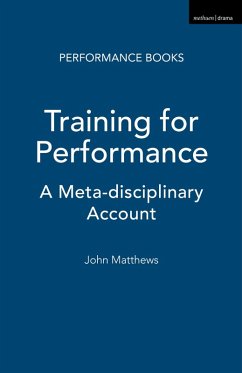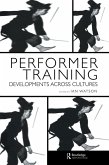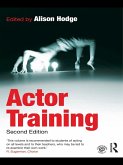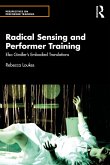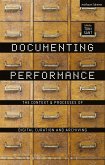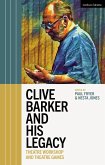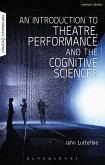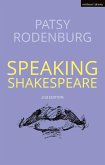'Training for Performance is the first work of its kind; not in the sense that it addresses training for performance, but in that it invites a critical questioning of the imperatives and the rhetoric which govern academic and practical concerns for training alike.' Dr Martin Welton - Queen Mary University of London
Training for Performance: a Meta-disciplinary Account is an innovative contribution to the field of work on contemporary actor and performer training. John Matthews introduces the concept of 'askeology' - a field of study that dissolves divisions between disciplines and their exercises - and identifies four meta-disciplinary categories in the process of training that are common to all institutional contexts: Vocation; Obedience; Formation and Automatisation.
Through the exploration of contrasting accounts of training and the differing cultural politics within which they operate, Matthews provides a highly original and comprehensive approach to defining one of the most frequently used terms in theatre and performance studies.
Training for Performance encourages performers to think afresh about how they understand and engage in their training and is an invaluable resource for any actor, student or professional interested in the process of performance.
Training for Performance: a Meta-disciplinary Account is an innovative contribution to the field of work on contemporary actor and performer training. John Matthews introduces the concept of 'askeology' - a field of study that dissolves divisions between disciplines and their exercises - and identifies four meta-disciplinary categories in the process of training that are common to all institutional contexts: Vocation; Obedience; Formation and Automatisation.
Through the exploration of contrasting accounts of training and the differing cultural politics within which they operate, Matthews provides a highly original and comprehensive approach to defining one of the most frequently used terms in theatre and performance studies.
Training for Performance encourages performers to think afresh about how they understand and engage in their training and is an invaluable resource for any actor, student or professional interested in the process of performance.

